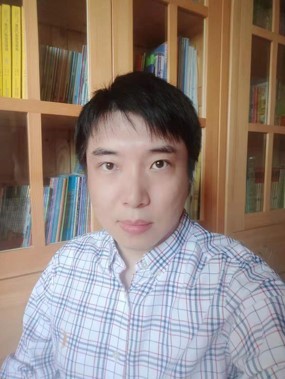Speakers 2023
Keynote Speaker Ⅰ

Prof. Jan Treur
Vrije Universiteit Amsterdam, The Netherlands
Speech Title: Human AI: multidisciplinary research based on integrating network-oriented and causal modeling to address higher-order adaptive dynamical systems in various disciplines
Abstract: This speech addresses the use of self-modeling temporal-causal networks to model adaptive biological, mental and social processes of any order of adaptation. This modeling approach integrates network-oriented and causal modeling perspectives by interpreting network connections as causal connections and adding dynamics of causal effects and adaptivity (of aribitrary order) of the causal connections to such causal networks. A network is defined by network characteristics for connectivity (connections between nodes), aggregation (combining multiple incoming causal impacts on a node) and timing (node state dynamics). By representing such network characteristics by additional self-model nodes with dynamic node states, these characteristics become adaptive. By iterating this construction, higher-order network adaptation is obtained. A developed dedicated software environment for self-modeling temporal-causal networks supports the modeling and simulation processes. It is shown that any smooth adaptive dynamical system of any order has a canonical representation by such a self-modeling temporal-causal network, which makes the approach widely applicable in various disciplines. This will be illustrated for current and recent topics from different disciplines.
Biography: Jan Treur has been a full professor of AI since 1990 and is a well-recognized expert in the area of multidisciplinary human-like AI modeling. He has published over 700 well-cited papers about cognitive, affective, and social modeling and AI systems making use of such computational models. He has also supervised more than 40 Ph.D. students in these areas. His research focuses on the modeling of higher-order adaptive processes by self-modeling network models with in 2016 and 2020 two Springer Nature books published about its foundation and application in various other disciplines. Concerning most recent and current research, one of the topics relating to psychology and neuroscience addresses mental processes based on internal mental models and their use by internal mental simulation, their learning or formation, and the control over them. A joint Springer Nature book about this came out in 2022. Another topic relating to social science and management science is computational modeling of multilevel organizational learning. A joint Springer Nature book about this is available from June 2023. Currently, the topic of multimodal social interaction and emerging synchronisation with its induced adaptive affiliation and bonding is addressed, relating to social psychology and social neuroscience. A joint Springer Nature book about this is planned to come out beginning of 2024. For more details, see https://www.researchgate.net/profile/Jan-Treur/research.
Keynote Speaker Ⅱ

Prof. Liang Hu
Tongji University, China
Speech Title: The Challenges of Large Models and Future Evolutions
Abstract: ChatGPT has sparked a new wave of economic development worldwide, leading many AI manufacturers and research institutions to strive for their own large language models (LLMs) in order to establish dominance in the field of AI. Expanding on the knowledge gained from LLMs, researchers have also explored the fusion of text and images to develop large multimodal models like OpenAI's GPT-4 and Google's PaLM-E. However, despite the success of scaling up parameters in existing large vision models, which improves performance in tasks like classification, object detection, and semantic segmentation, they still lack the ability to tackle broader problems as effectively as LLMs. While LLMs move closer to achieving artificial general intelligence (AGI), large vision models struggle in this aspect. In this discussion, we will briefly analyze the reasons behind LLMs' faster breakthroughs through parameter scaling and the limitations that prevent large vision models from achieving similar "emergence" of general intelligence.
Biography: Dr Liang Hu is a professor with Tongi University and also the Chief Al Scientist with DeepBlue Academy of Sciences, China. His research interests include recommender systems, machine leaming, data science and general intelligence. He has published a number of papers in top rank interational conferences and journals, including WWW, IJCAI, AAAL, ICDM, TOIS, TKDE, TNNLS. He has been invited as the program commitee members of more than 30 top-rank Al interational conferences, including AAAI, IJCAI, ICDM, CIKM, and KDD. He also serves as the reviewer of more than ten top-rank interational journals, including ACM CSUR, IEEE TKDE, ACM TOIS, IEEE TPAMl, etc. In addition,he has presented more than ten tutorials on recommender systems and machine leaing at top-rank Al conferences including IJCAl, AAAl, SIGIR, WWW and ICDM.
Keynote Speaker Ⅲ

Prof. Hoong Chuin Lau
Singapore Management University, Singapore
Speech Title: AI for Safety and Sustainability Operations
Abstract: Traditionally Machine Learning belongs to the field of AI, while Combinatorial Optimization is a key area in Operations Research. The line is blurring today as the communities come together to tackle new problems in both disciplines. In this talk, I will discuss my recent works on tackling several operational problems arising in urban and maritime transportation settings. In particular, I will discuss problems in maritime traffic safety, urban policing and emergency response, and finally in urban crowdsourced logistics. The underlying challenge is in generating robust routes and schedules in dynamic and stochastic environments; and I will show how we can combine machine learning and planning in interesting ways to tackle this challenge.
Biography: Hoong Chuin LAU is Professor of Computer Science at the Singapore Management University School of Computing and Information Systems, and jointly appointed by the Singapore Agency for Science, Technology and Research (A*STAR) as a Principal Scientist at the Institute of High Performance Computing. He also holds a Specially Appointed Professor of AI and Information appointment at the Tokyo Institute of Technology, Japan. He was Director of the Fujitsu-SMU Urban Computing and Engineering Corp Lab from 2014-2020. His research in the interface of Artificial Intelligence and Operations Research has contributed to advances of algorithms in a variety of complex planning and optimization problems in logistics, transportation, and related domains. The common thread running through his research is a focus on going beyond publications to build usable novel tools and prototypes, a number of which have been field tested and deployed in industry. In recognition of his achievements, contributions and service to academia and industry, he was conferred Outstanding Professor Award by the Industrial Engineering and Operations Management Society in 2021. In a global study by Stanford University published in 2020, he was named top 2% scientists in the world in the field of Artificial Intelligence. Hoong Chuin serves on the a number of editorial boards, including ACM Journal on Autonomous Transportation. Journal of Scheduling, and IEEE Transactions on Automation Science and Engineering.



